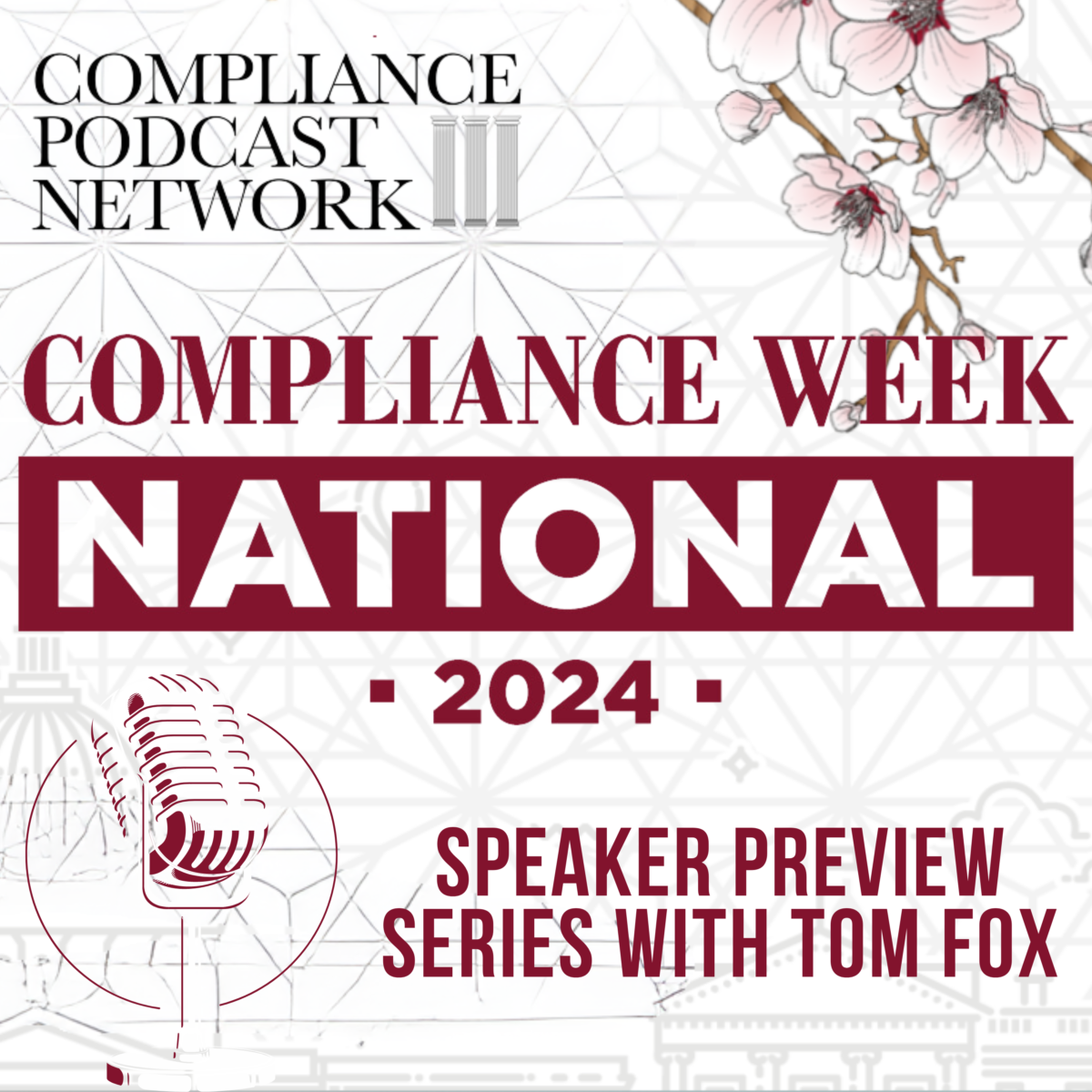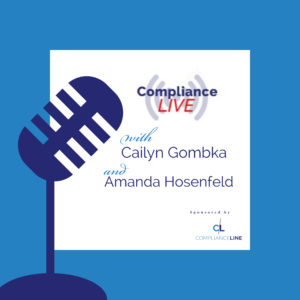In this episode of the Compliance Week 2024 Speaker Preview Podcasts series, Michael Rinard discusses his panel presentation at Compliance Week 2024, “Opportunities at the Intersection of Compliance and IT.” Some of the issues he will discuss in this podcast and his presentation are:
- Compliance, CISOs, and Cyber security
- Getting Board engagement
- Seeing old friends, meeting new friends, and learning about new best practices at Compliance Week 2024.
I hope you can join me at Compliance Week 2024. This year’s event will be held April 2-4 at the Westin Washington, DC, Downtown. The line-up is first-rate, with some top ethics and compliance practitioners around.
Gain insights and make connections at the industry’s premier cross-industry national compliance event, offering knowledge-packed, accredited sessions and take-home advice from the most influential leaders in the compliance community. Back for its 19th year, join 500+ compliance, ethics, legal, and audit professionals who gather to benchmark best practices and gain the latest tactics and strategies to enhance their compliance programs. Compliance, ethics, legal, and audit professionals will gather safely face-to-face to benchmark best practices and gain the latest tactics and strategies to enhance their compliance programs, among many others, to:
- Network with your peers, including C-suite executives, legal professionals, HR leaders, and ethics and compliance visionaries.
- Hear from 80+ respected cross-industry practitioners, including CEOs, CCOs, regulators, federal officials, and practitioners, to help inform and shape the strategic direction of your enterprise risk management program.
- Hear directly from panels on leadership, fraud detection, confronting regulatory change, abiding by cross-border rules and regulations, and the always-favorite fireside chats.
- Bring actionable takeaways from various session types, including cyber, AI, Compliance, Board obligations, data-driven compliance, and many others, to your program for you to listen, learn, and share.
- Compliance Week aims to arm you with information, strategy, and tactics to transform your organization and career by connecting ethics to business performance through process augmentation and data visualization.
I hope you can join me at the event. For information on the event, click here. As an extra benefit to listeners of this podcast, Compliance Week is offering a $200 discount on the registration price. Enter the discount code TFOX2024 for $200 off.
The Compliance Podcast Network produces the Compliance Week 2024 Preview Podcast series. Compliance Week sponsors this series.




